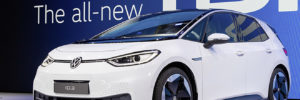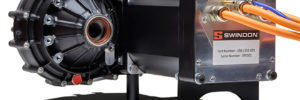Northvolt initially will extract valuable battery materials from external batteries, but in the future will recycle also its own cells.
Source: Electric Vehicle News
Electric Vehicle News
Segway Ninebot begins sales for its futuristic $569 electric scooter
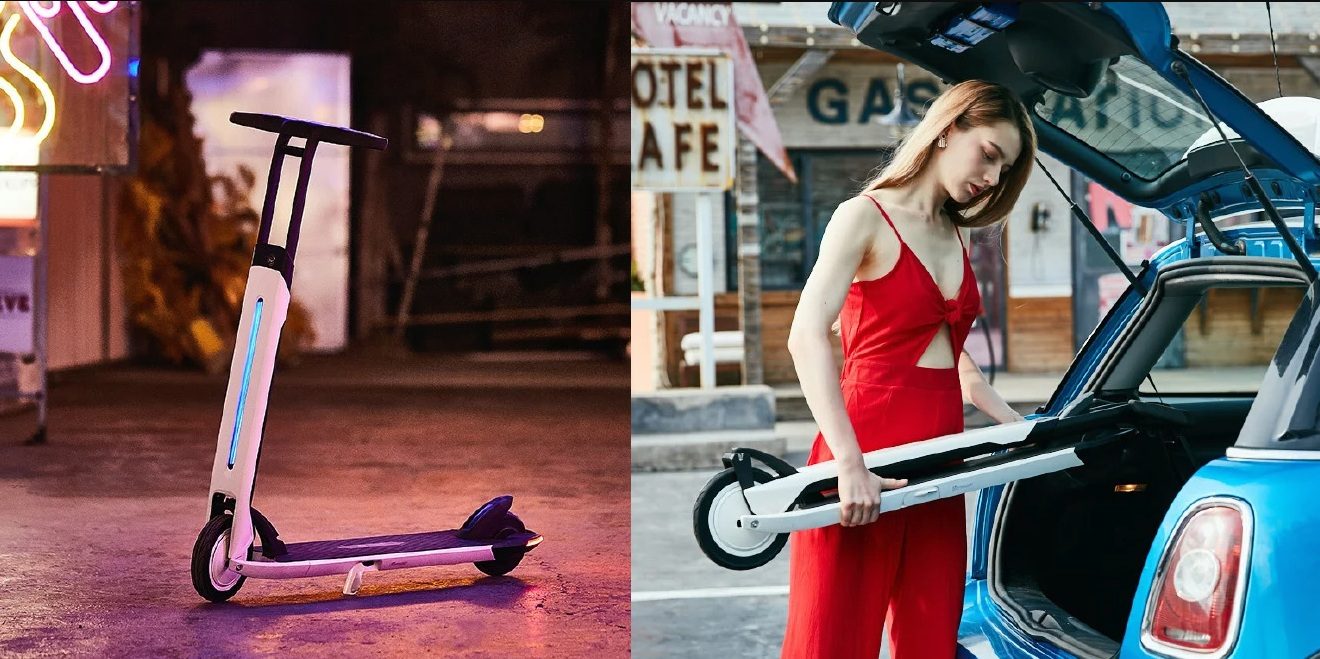
Ninebot, the Chinese electric mobility company that purchased Segway, has just launched the Ninebot KickScooter Air T15. The electric scooter is the company’s latest design and features a number of futuristic-looking advancements.
The post Segway Ninebot begins sales for its futuristic $569 electric scooter appeared first on Electrek.
Source: Charge Forward
Tritium adds Plug & Charge capability to its charging stations
Tritium, an Australia-based manufacturer of DC fast charging stations, has incorporated Plug & Charge technology into its products. Tritium says Plug & Charge capability is available immediately for charge point operators to deploy on its PK350kW DC High Power Chargers.
Plug & Charge, based on the ISO 15118 standard, enables direct communication between an EV and a charger, eliminating the need for a card or RFID tag. Using Plug & Charge, a charging session will be automatically and securely billed from the moment the plug connects to the vehicle, regardless of the network operator.
“This firmly and irreversibly tips the convenience scales to the recharging experience over the refueling experience,” says Tritium co-founder and CTO James Kennedy. “There is no more need for a membership card or even to swipe a bank card at a terminal; this is the first and most secure iteration available to the market and, once deployed to critical mass, will render any former payment process archaic.”
Kennedy says Tritium’s Plug & Charge solution is more secure than existing card-swipe or RFID tag payment methods. “A third party such as Hubject, which provides an automated and secure data exchange enabled by ISO 15118-conforming Public Key Infrastructure, is responsible for cryptographic certifications between the vehicle and the charger, and our technology ensures we are securely storing cryptographic keys on the charger side in a way that other chargers can’t. You’re more likely to lose a card and have someone swipe it somewhere than by someone being able to access account details via our Plug & Charge technology.”
Vehicles will also need a way to secure the vehicle-side cryptographic key, which will become commonplace with emerging models. “The vehicles will need to have the storage technology built in, in much the same way as paying for something with your smartphone requires NFC technology,” said Kennedy. “Once that becomes the norm, as NFC has, you will see the incidents of Plug & Charge payments skyrocket.”
Tritium has tested its Plug & Charge technology in a live setting at a number of its PK350kW DC High Power Chargers in Germany. The solution has also been repeatedly tested at the Tritium E-Mobility Innovation Centre in Amsterdam, where automotive manufacturers have been able to test vehicles for interoperability with Tritium’s suite of DC chargers.
“We placed our innovation centre strategically in Amsterdam and at the epicentre of Europe’s automotive manufacturing sector,” said Kennedy. “That investment has paid off, and directly led to the rapid development of the technology. It’s a major reason why we’re first to the market with a secure and advanced charger technology.”
Source: Tritium
Source: Electric Vehicles Magazine
VW to shift to dealer agency model for EV sales
It’s no secret that auto dealerships are a major bottleneck for EV sales. Legacy automakers may cast an envious eye on Tesla’s direct-to-customer sales model, but they cannot practically (or legally) cut the dealers out of the equation. Now Volkswagen may have found a way to solve this dilemma, at least in Germany.
VW has announced that its German dealerships will not be the primary point of contact for buyers of the new ID family of EVs. Rather, customers will place their orders directly with Volkswagen, and choose a local dealer, which will act as an agent. Dealerships will provide test drives, finalize transactions, and deliver the vehicles. Prices and dealership commissions will be fixed.
This neatly eliminates several of the problems with selling EVs through the traditional dealership model. Dealers will no longer have an incentive (nor will they have the opportunity) to steer potential EV customers to gas or diesel vehicles. Sales associates don’t need to become EV experts, or do the extra work required to sell an unfamiliar product. The salesperson hands over the vehicle, the dealership gets paid, and everybody’s happy.
“All our partners are now 100% on board,” said Holger B. Santel, head of VW sales in Germany. “From the customer’s perspective, Volkswagen and retail become one unit with the agency model. And this seamless, coordinated shopping experience at all touchpoints is exactly what our customers want.”
The new model also offers financial benefits for dealerships. “The dealer no longer has to finance vehicles in advance,” Santel explained. “We also bear inventory cost and the costs associated with showroom vehicles. We are offering dealers an extremely attractive leasing concept for demonstration vehicles.”
“The agency model brings significant financial relief for dealers, and that is particularly important at the present time,” said Dirk Weddigen von Knapp, Chairperson of the Volkswagen and Audi partner association. “Our partners can, therefore, focus on what makes retail so indispensable: personal, competent customer care.”
Source: Electrek
Source: Electric Vehicles Magazine
Swindon is taking orders for its new “crate” EV powertrain
Swindon Powertrain’s compact HPD 80 kW “crate” motor for EV conversions is now available to order from the company’s web site. The motor is suitable for OEMs, niche vehicle manufacturers, electric car conversion companies and home mechanics. Prices start at £6,400+VAT for the 80 kW motor, transmission and differential. Options for cooling, inverters and limited-slip differential are also available. Deliveries will commence in August 2020.
Swindon says it has refined and improved the HPD’s specification since the product was first announced six months ago. Weighing 49.9 kg including lubricants, the HPD system features a brushless, permanent magnet motor, transmission, open differential and one meter of cabling. The package size is 441 mm x 384 mm x 228 mm.
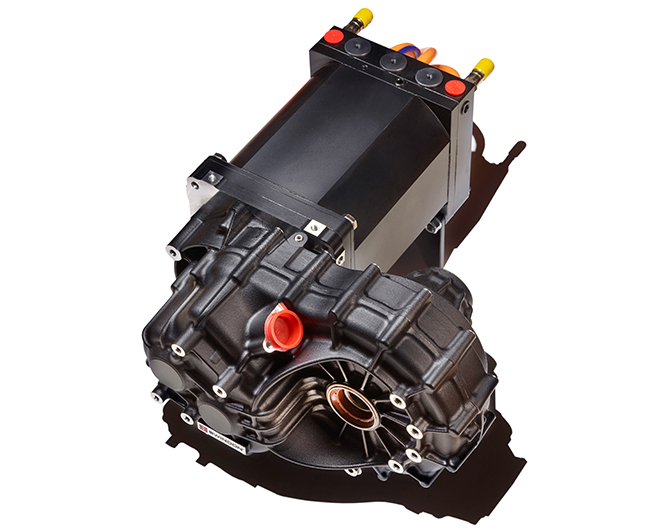
With multiple installation points and the ability to site the inverter and cooling packs separately, the HPD can fit in a wide range of vehicles. Two inverter options, depending on battery voltage, are available, although customers can also use their own. Dependent on the tire size and top speed requirement, buyers can decide between two no-cost gear ratio options using Swindon Powertrain’s online calculator.
“It’s now easier than ever for anyone to convert a car, truck or even quad bike to electric,” says MD Raphaël Caillé. “HPD is a new, properly engineered system with a year’s warranty. With deliveries starting in August, now could be the ideal time to start planning a project.”
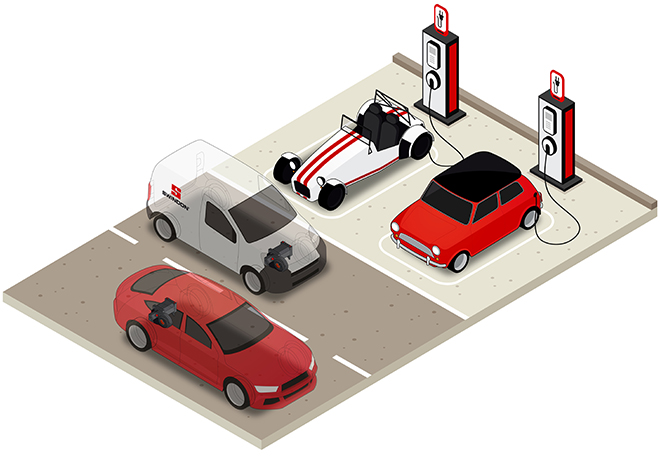
Source: Swindon Powertrain
Source: Electric Vehicles Magazine
Rivian Adventure Network: electric pickup maker hires Tesla staff to build charging network
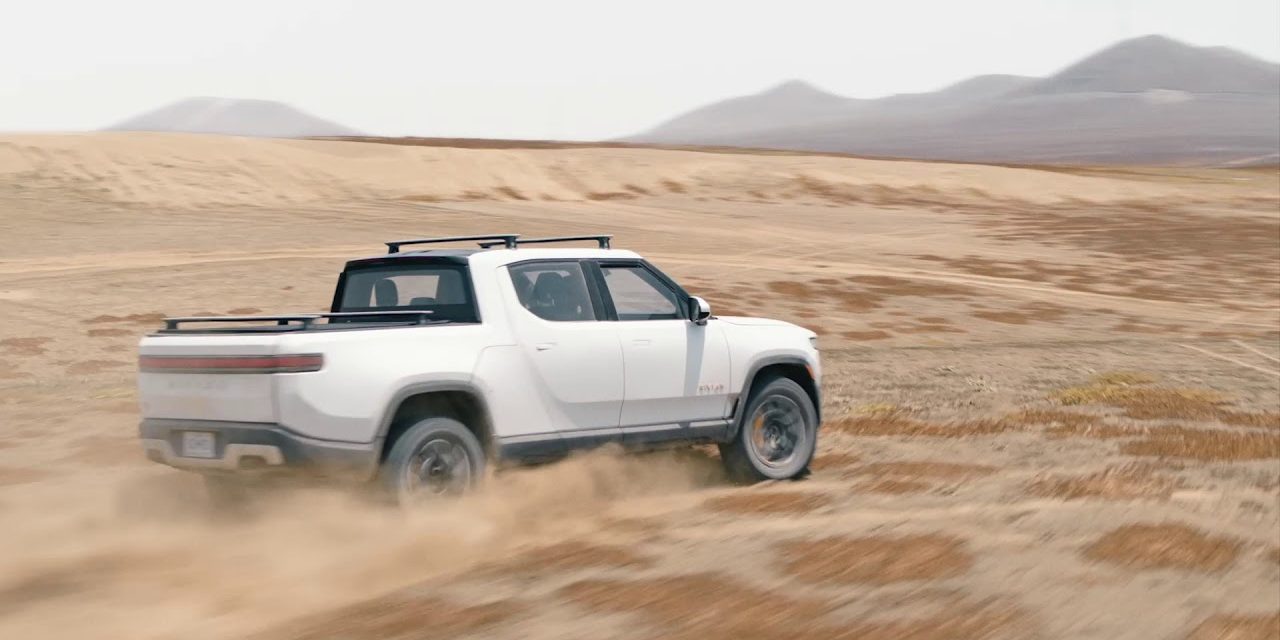
The charging experience is really important for the success of electric vehicles and automakers have widely different approaches. Rivian, an electric pickup truck startup, is betting on its own network and it is hiring from the leader, Tesla, to build it out. more…
The post Rivian Adventure Network: electric pickup maker hires Tesla staff to build charging network appeared first on Electrek.
Source: Charge Forward
All-Electric Car Range, Price & More Compared For U.S. – June 1, 2020
Tesla lowered prices significantly and we have new models from Audi and Polestar.
Source: Electric Vehicle News
Quick Charge Podcast: June 1, 2020
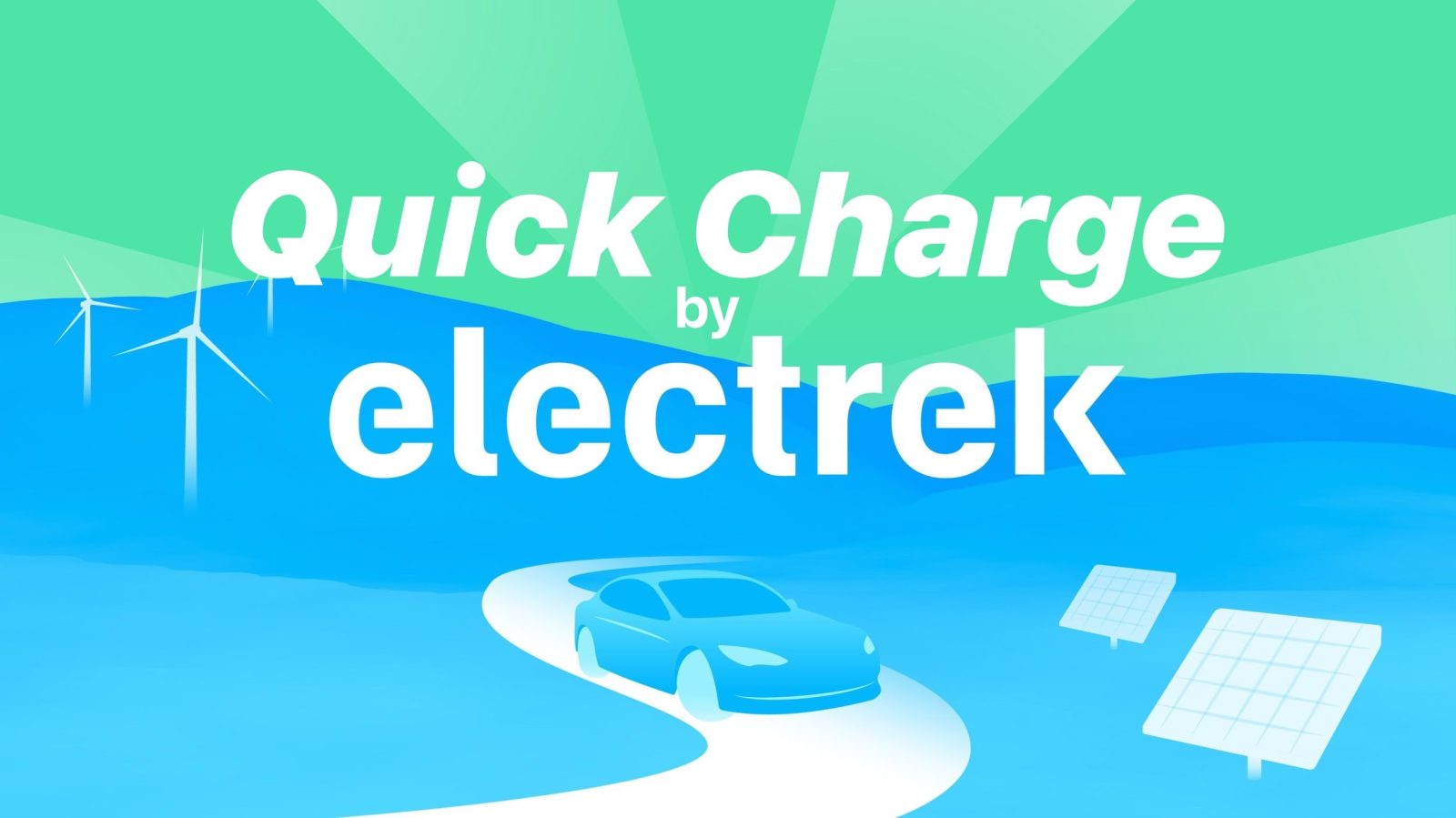
Listen to a recap of the top stories of the day from Electrek. Quick Charge is available now on Apple Podcasts, Spotify, TuneIn and our RSS feed for Overcast and other podcast players.
The post Quick Charge Podcast: June 1, 2020 appeared first on Electrek.
Source: Charge Forward
U.S. Plug-In Electric Passenger Car Sales Hit 5.5% In January-April 2020
One in 18 passenger cars sold in the U.S. during the first four months was a plug-in.
Source: Electric Vehicle News
VW Confirms Investments In JAC Motors And Guoxuan Battery Maker
As Reuters anticipated, the deal was announced last May 29.
Source: Electric Vehicle News


